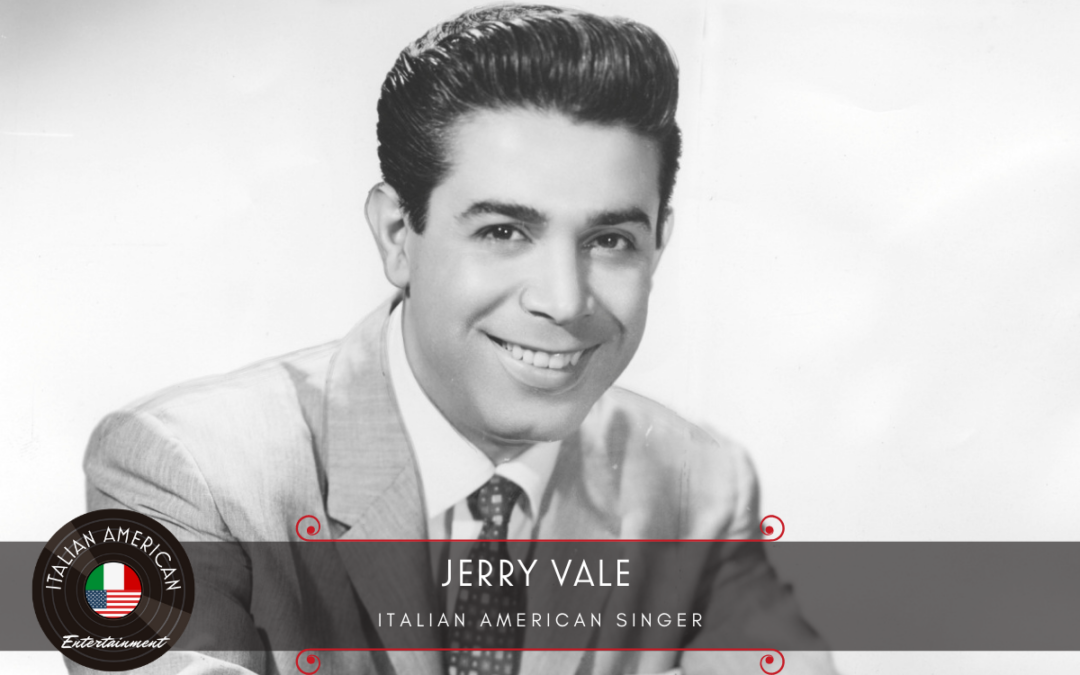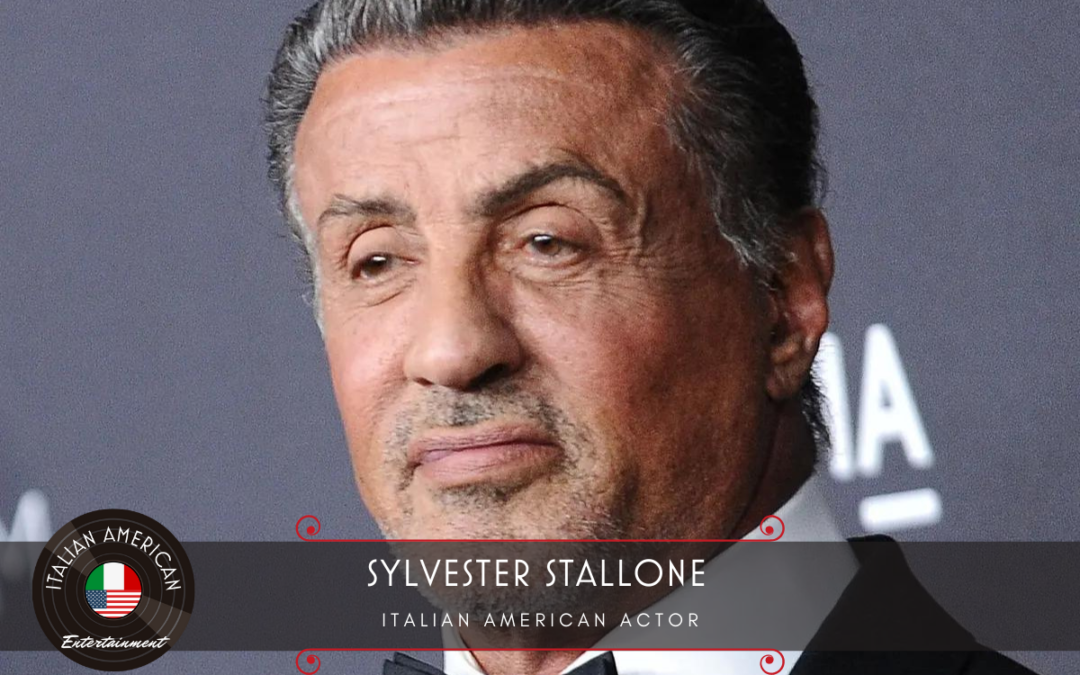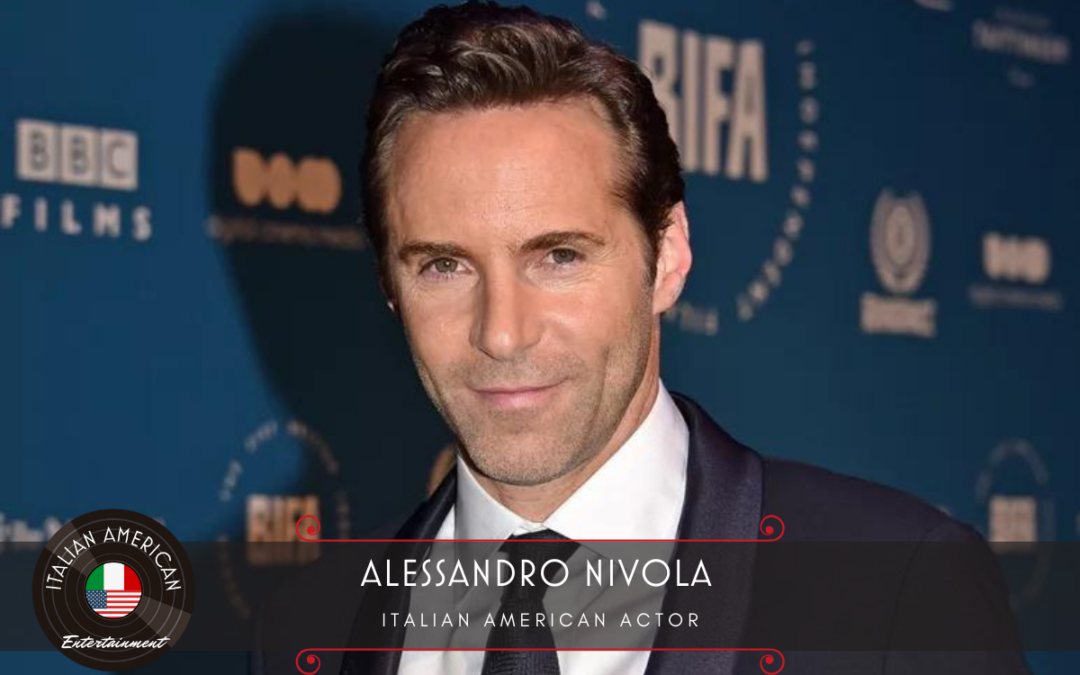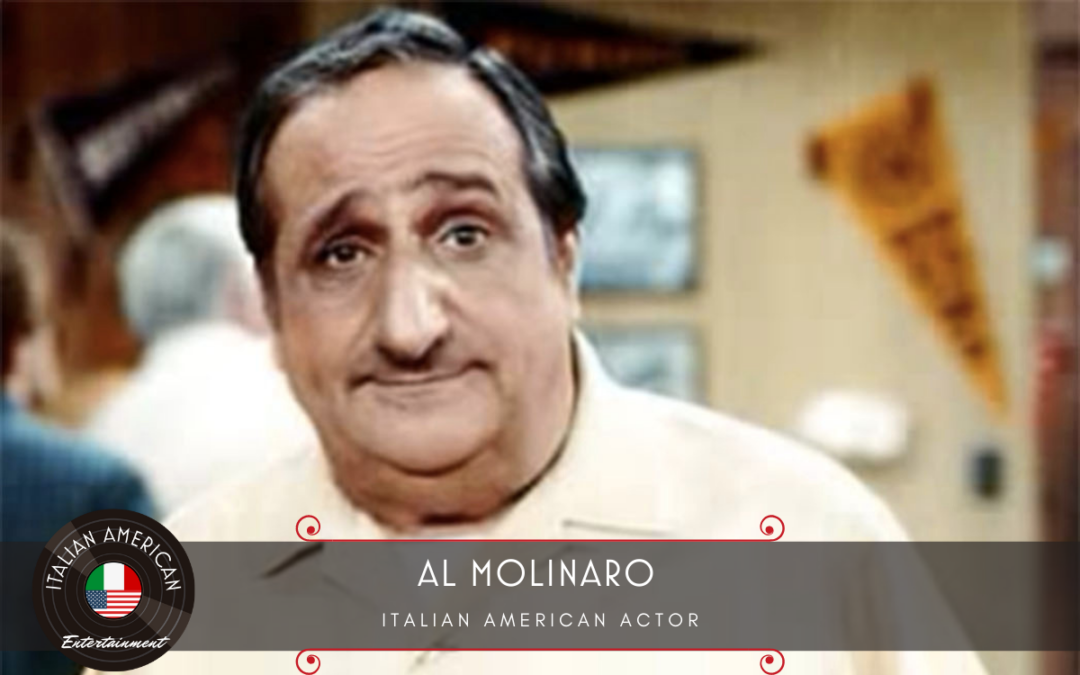
by Vince Chiarelli | Sep 1, 2021 | Musicians
Gwen Renée Stefani was born on October 3, 1969, in Fullerton, California, and raised Catholic in nearby Anaheim, California. Her father, Dennis Stefani, is Italian-American and worked as a Yamaha marketing executive. Stefani’s parents were fans of folk music and exposed her to music by artists like Bob Dylan and Emmylou Harris.
Her brother Eric introduced Gwen to 2 Tone music by Madness and the Selecter and, in 1986, he invited her to provide vocals for No Doubt, a ska band he was forming. In 1991 the band was signed to Interscope Records. The band released its self-titled debut album in 1992, but its ska-pop sound was unsuccessful due to the popularity of grunge. Before the mainstream success of both No Doubt and Sublime, Stefani contributed guest vocals to “Saw Red” on Sublime’s 1994 album Robbin’ the Hood. Stefani rejected the aggressiveness of female grunge artists and cited Blondie singer Debbie Harry’s combination of power and sex appeal as a major influence. No Doubt’s third album, Tragic Kingdom (1995), which followed the self-released The Beacon Street Collection (1995), took more than three years to make. Five singles were released from Tragic Kingdom, including “Don’t Speak”, which led the Hot 100 Airplay year-end chart of 1997. Stefani left college for one semester to tour for Tragic Kingdom but did not return when touring lasted two and a half years. The album was nominated for a Grammy and sold more than 16 million copies worldwide by 2004. In late 2000, Rolling Stone magazine named her “the Queen of Confessional Pop”.
During the time when No Doubt was receiving mainstream success, Stefani collaborated on the singles “You’re the Boss” with the Brian Setzer Orchestra, “South Side” with Moby, and “Let Me Blow Ya Mind” with Eve. No Doubt released the less popular Return of Saturn in 2000, which expanded upon the new wave influences of Tragic Kingdom.[26] Most of the lyrical content focused on Stefani’s often rocky relationship with then-Bush frontman Gavin Rossdale and her insecurities, including indecision on settling down and having a child. The band’s 2001 album, Rock Steady, explored more reggae and dancehall sounds, while maintaining the band’s new wave influences. The album generated career-highest singles chart positions in the United States,[29] and “Hey Baby” and “Underneath It All” received Grammy Awards. A greatest hits collection, The Singles 1992–2003, which includes a cover of Talk Talk’s “It’s My Life”, was released in 2003. In 2002, Eve and Stefani won a Grammy Award for Best Rap/Sung Collaboration for “Let Me Blow Ya Mind”.
Stefani’s debut solo album Love. Angel. Music. Baby. was released on November 12, 2004. The album features several collaborations with producers and other artists, including Tony Kanal, Tom Rothrock, Linda Perry, André 3000, Nellee Hooper, the Neptunes and New Order. Stefani created the album to modernize the music to which she listened when in high school, and L.A.M.B. takes influence from a variety of music styles of the 1980s and early 1990s such as new wave, synthpop, and electro. Stefani’s decision to use her solo career as an opportunity to delve further into pop music instead of trying “to convince the world of [her] talent, depth and artistic worth” was considered unusual. The album was described as “fun as hell but … not exactly rife with subversive social commentary”. The album debuted on the US Billboard 200 albums chart at number seven, selling 309,000 copies in its first week. L.A.M.B. reached multi-platinum status in the United States, the United Kingdom, Australia, and Canada.
Stefani announced her relationship with Blake Shelton, country music artist and The Voice co-star, in November 2015. The couple announced their engagement on October 27, 2020, and married on July 3, 2021, at Shelton’s Oklahoma ranch.
Throughout her career as a solo artist, Stefani has won several music awards, including one Grammy Award, four MTV Video Music Awards, one American Music Award, one Brit Award, and two Billboard Music Awards. With No Doubt, she has won two Grammy Awards. In 2005, Rolling Stone called her “the only true female rock star left on radio or MTV” and featured her on the magazine’s cover. Stefani received the Style Icon Award at the first People Magazine Awards in 2014. In 2016, the singer was honored at the Radio Disney Music Awards with a Hero Award, which is given to artists based on their personal contributions to various charitable works.
Stefani has been referred to as a “Pop Princess” by several contemporary music critics. In 2012, VH1 listed the singer at the number thirteen on their list of “100 Greatest Women in Music”.
Source

by Vince Chiarelli | Jul 8, 2021 | Blog, Musicians
Vale was born Gennaro Louis Vitaliano in the Bronx, New York, to Italian immigrant parents, and grew up in the Wakefield section of the Bronx which at the time was composed mainly of Italian-American families. In high school, to earn money, Vale took a job shining shoes in a barbershop, singing while he worked. His boss, Vito Veneziano, liked the sound so well that he paid for music lessons for the boy. Vale started singing in high school musicals and at a local nightclub. Still a teenager, he left school to work in a factory as an oiler alongside his father.
Vale’s early nightclub performances led to additional shows in the early 1950s, including one lasting for three years at the Enchanted Room, a club in Yonkers, New York. When Paul Insetta (road manager for singer Guy Mitchell and hit songwriter) heard him there, he signed him to a management contract and further coached him. Insetta arranged for Vale to record some demonstration records of songs he’d written, and he brought them to Columbia Records. Guy Mitchell introduced Vale to Mitch Miller, then head of A&R at Columbia Records. Vale signed a recording contract, with Insetta as his manager for many years to come.
Jerry Vale appeared on the Ted Mack Amateur Hour in 1950 singing “It Isn’t Fair”.
Vale’s first recording with the Columbia label, with accompaniment by Percy Faith and his band, was “You Can Never Give Me Back My Heart”, reached #29 on the Billboard Hot 100 chart, becoming Vale’s first U.S. hit.
His version of “The Star-Spangled Banner”, recorded in late 1963, was a fixture at many sporting events for years, and the gold record Vale received was displayed at the National Baseball Hall of Fame in Cooperstown, New York. Vale frequently sang the song at Yankee Stadium. Additionally, he owned the Daytona Beach Admirals.
He sang the Late Night with David Letterman anthem “It’s A Late Night World” on the program’s eighth anniversary special in 1990. He made cameo appearances as himself in the 1990 film Goodfellas and the 1995 film Casino, both directed by Martin Scorsese.
Vale reportedly suffered a stroke in 2002 and did not perform in his later years.
Jerry Vale died of natural causes in his sleep on May 18, 2014, at his home in Palm Desert, California. Vale was 83 years old.
As an actor, Vale appeared as himself in the films Goodfellas and Casino as well as in television series such as The Sopranos, Who’s The Boss and Growing Pains.
In the 2016 Disney animated film Zootopia, Nick Wilde finds a CD by “Jerry Vole”. Vale is portrayed by Steven Van Zandt in the 2019 film The Irishman.
In 1998, a Golden Palm Star on the Palm Springs Walk of Stars was dedicated to Vale.
Source

by Vince Chiarelli | Jul 6, 2021 | Film, Television
Michael Sylvester Gardenzio Stallone was born in the Hell’s Kitchen neighborhood of Manhattan, New York City on July 6, 1946, the elder son of Francesco “Frank” Stallone Sr., a hairdresser and beautician, and Jacqueline “Jackie” Stallone (née Labofish; 1921–2020), an astrologer, dancer, and promoter of women’s wrestling. His Italian father was born in Gioia del Colle, Italy and moved to the U.S. in the 1930s while his American mother is of French (from Brittany) and Eastern European descent. His younger brother is actor and musician Frank Stallone.
Complications suffered by Stallone’s mother during labor forced her obstetricians to use two pairs of forceps during his birth; misuse of these forceps accidentally severed a nerve and caused paralysis in parts of Stallone’s face. As a result, the lower left side of his face is paralyzed (including parts of his lip, tongue, and chin), an accident which gave him his signature snarling look and slurred speech. His father moved the family to Washington, D.C. in the early 1950s to open a beauty school. In 1954, his mother opened a women’s gym called Barbella’s. Stallone attended Notre Dame Academy and Lincoln High School in Philadelphia, as well as Charlotte Hall Military Academy, prior to attending Miami Dade College.He spent two years, from September 1965 to June 1967, at the American College of Switzerland and returned to the United States to study as a drama major at the University of Miami, from 1967 to 1969. Until 1969, he appeared on the stage under the name Mike Stallone; in 1970, he started using the stage name Sylvester E. Stallone.
While attending the University of Miami, Stallone had a role in the drama That Nice Boy (aka The Square Root), filmed in 1968. Stallone had his first starring role in the softcore pornography feature film The Party at Kitty and Stud’s (1970). He was paid US$200 for two days’ work. Stallone later explained that he had done the film out of desperation after being evicted from his apartment and finding himself homeless for several days. He has also said that he slept three weeks in the Port Authority Bus Terminal in New York City prior to seeing a casting notice for the film. In the actor’s words, “it was either do that movie or rob someone, because I was at the end – the very end – of my rope”. The film was released several years later as Italian Stallion, in order to cash in on Stallone’s newfound fame (the new title was taken from Stallone’s nickname since Rocky). Stallone also starred in the erotic off-Broadway stage play Score which ran for 23 performances at the Martinique Theatre from October 28 to November 15, 1971, and was later made into the 1974 film Score by Radley Metzger.
After moving to New York City, Stallone shared an apartment with his girlfriend, Sasha Czack, who supporting them by working as a waitress and she was an aspiring actress herself. Stallone took odd jobs around this time, including being a cleaner at a zoo, and a movie theater usher; he was fired from the latter for scalping tickets. He furthered his writing skills by frequenting a local library, and became interested in the works of Edgar Allan Poe.
In 1972, Stallone was on the verge of giving up on having an acting career; in what he later described as a low point, he tried and failed to get a job as an extra in The Godfather. Instead, he was relegated to a background role in another Hollywood hit, What’s Up, Doc?, starring Barbra Streisand. Stallone is hardly visible in his two appearances.
Stallone happened to be acting in a play that a friend invited him to partake in, and an agent in attendance thought that Stallone fit the role of Stanley, a main character in The Lords of Flatbush, which had a start-stop schedule from 1972 to 1974 over budget issues. Stallone, around mid-1973, achieved his first proper starring role, in the independent film No Place to Hide, playing a man who is associated with a New York-based urban terrorist movement, with a jewellery-seller as his love interest. The film was re-cut and retitled Rebel years later, this second version featuring Stallone as its star. In 1990, this film was re-edited with outtakes from the original movie and newly shot matching footage, then redubbed – in the style of Woody Allen’s What’s Up, Tiger Lily? – into a parody of itself titled A Man Called… Rainbo.
Stallone’s other first few film roles were minor, and included brief uncredited appearances in MASH (1970), as a soldier sitting at a table; Pigeons (1970), as a party guest; Woody Allen’s Bananas (1971), as a subway thug; in the psychological thriller Klute (1971), as an extra dancing in a club; and in the Jack Lemmon film The Prisoner of Second Avenue (1975), as a youth. In the latter film, Jack Lemmon’s character chases, tackles, and mugs Stallone, thinking that Stallone’s character is a pickpocket. He had his second starring role in 1974, in The Lords of Flatbush.[15] In 1975, he played supporting roles in Farewell, My Lovely; Capone; and Death Race 2000. He made guest appearances on the TV series Police Story and Kojak. He is also supposedly in Mandingo. It is often said that his scene was deleted.
Stallone gained worldwide fame with his starring role in the smash hit Rocky (1976), a sports drama about a struggling boxer, Rocky Balboa, taking on heavyweight champion Apollo Creed.[15] On March 24, 1975, Stallone saw the Muhammad Ali–Chuck Wepner fight. That night Stallone went home, and after three days and 20 straight hours, he had written the script, but Stallone subsequently denied that Wepner provided any inspiration for it. Other possible inspirations for the film may have included Rocky Graziano’s autobiography Somebody Up There Likes Me, and the movie of the same name. Wepner filed a lawsuit which was eventually settled with Stallone for an undisclosed amount. Stallone attempted to sell the script to multiple studios, with the intention of playing the lead role himself. Irwin Winkler and Robert Chartoff became interested and offered Stallone US$350,000 for the rights, but had their own casting ideas for the lead role, including Robert Redford and Burt Reynolds. Stallone refused to sell unless he played the lead character and eventually, after a substantial budget cut to compromise, it was agreed he could be the star. Upon its release critic Roger Ebert stated that Stallone could become the next Marlon Brando.
In 1977, at the 49th Academy Awards, Rocky was nominated for ten Oscars, including Best Actor and Best Original Screenplay nominations for Stallone. The film went on to win the Academy Awards for Best Picture, Best Directing, and Best Film Editing.
Stallone made his directorial debut and starred in the 1978 film Paradise Alley, a family drama in which he played one of three brothers who get involved in professional wrestling. That same year, he starred in Norman Jewison’s F.I.S.T., a social drama in which he plays a warehouse worker, very loosely modelled on James Hoffa, who becomes involved in labor union leadership.
In 1979, he wrote, directed and starred in Rocky II (replacing John G. Avildsen, who won an Academy Award for directing the first film). The sequel became a major success, grossing US$200 million.
In 1981, he starred alongside Michael Caine and soccer star Pelé in Escape to Victory, a sports drama in which he plays a prisoner of war involved in a Nazi propaganda soccer game. That same year, he starred in the thriller Nighthawks, in which he plays a New York city cop who plays a cat-and-mouse game with a foreign terrorist, played by Rutger Hauer.
In 1982, Stallone starred as Vietnam veteran John Rambo, a former Green Beret, in the action film First Blood, which was both a critical and box office success. Critics praised Stallone’s performance, saying he made Rambo seem human, as opposed to the way he is portrayed in the book of the same name. It launched the Rambo franchise. That year Rocky III was released in which Stallone wrote, directed, and starred. The third sequel became a box office success. In preparation for these roles, Stallone embarked upon a vigorous training regimen, which often meant six days a week in the gym and further sit-ups in the evenings. Stallone claims to have reduced his body fat percentage to his all-time low of 2.8% for Rocky III.
In 1983, he directed Staying Alive, the sequel to Saturday Night Fever, starring John Travolta. This was the only film Stallone directed that he did not star in. Staying Alive was universally panned by film critics. Despite being a critical failure, Staying Alive was a commercial success. The film opened with the biggest weekend for a musical film ever (at the time) with a gross of $12,146,143 from 1,660 screens. Overall, the film grossed nearly $65 million in the US box office against its $22 million budget. Worldwide it grossed $127 million. Though the US box office intake was significantly less than the $139.5 million earned by Saturday Night Fever, the film nevertheless ranked in the top ten most financially successful films of 1983.
Stallone during the 1980s was one of the biggest action film stars in the world. He occasionally attempted, albeit unsuccessfully, roles in different genres. In 1984, he co-wrote and starred alongside Dolly Parton in the comedy film Rhinestone, where he played a wannabe country music singer. For the Rhinestone soundtrack, he performed a song. Stallone turned down the lead male role in Romancing the Stone in order to make Rhinestone instead, a decision he later regretted.
In 1985, Stallone continued his success with the Rocky and Rambo franchises with Rocky IV and Rambo: First Blood Part II. Stallone has portrayed these two characters in a total of 11 films. Stallone met former Mr. Olympia Franco Columbu to develop his character’s appearance for the films Rocky IV, just as if he were preparing for the Mr. Olympia competition. That meant two workouts a day, six days a week. Both films were major financial successes.
It was around 1985 that Stallone was signed to a remake of the 1939 James Cagney classic Angels With Dirty Faces. The film would form part of his multi-picture deal with Cannon Films and was to co-star Christopher Reeve and be directed by Menahem Golan. The re-making of such a beloved classic was met with disapproval by Variety and horror by top critic Roger Ebert. Cannon opted to make the action film Cobra which was released in 1986 and became a box office success. It leads up to his production company White Eagle Enterprises.
In 1987, he starred in the family drama Over the Top as a struggling trucker who tries to make amends with his estranged son and enters an arm wrestling competition. This was poorly received by critics and was a box office failure. In 1989, he co-starred alongside Kurt Russell in the buddy cop action film Tango & Cash, which did solid business domestically and overseas, grossing US$57 million in foreign markets and over US$120 million worldwide.
Stallone became a boxing promoter in the 1980s. His boxing promoting company, Tiger Eye Productions, signed world champion boxers Sean O’Grady and Aaron Pryor.
Stallone began the 1990s starring in the fifth installment of the Rocky franchise, Rocky V. This film brought back the first film’s director, John G. Avildsen, and was intended to be the final installment in the series. It was considered a box office disappointment and received negative reviews.
Stallone next appeared in John Landis’ period comedy Oscar which was both a critical and box office failure. In 1992, he appeared in Roger Spottiswoode’s action comedy Stop! Or My Mom Will Shoot which was also both a critical and box office disaster. Stallone signed onto the film based on rumors that Arnold Schwarzenegger was interested in the lead. Schwarzenegger said that, knowing the script was “really bad”, he had publicly faked interest in starring for producers to lure Stallone.
In 1993, he made a comeback with Renny Harlin’s action thriller Cliffhanger. which was a success in the US, grossing US$84 million, and worldwide, grossing US$171 million. Later that year, he starred in the futuristic action film Demolition Man directed by Marco Brambilla, co-starring Wesley Snipes and Sandra Bullock. On Rotten Tomatoes the film has an approval rating of 60% based on 42 reviews, with an average rating of 5.43/10. The site’s consensus reads: “A better-than-average sci-fi shoot-em-up with a satirical undercurrent, Demolition Man is bolstered by strong performances by Stallone, Snipes, and Bullock.” The film debuted at No. 1 at the box office. Demolition Man grossed $58,055,768 by the end of its box office run in North America and $159,055,768 worldwide.
His string of hits continued with 1994’s The Specialist co-starring Sharon Stone and directed by Luis Llosa, which opened in the U.S. on October 7. While the critical reception was overwhelmingly negative, the film was a commercial success. In its opening weekend it made $14,317,765 and ended up making back its budget with $57,362,582 at the domestic box office while making another $113,000,000 overseas, giving it a worldwide gross of $170,362,582.
In 1998, he did voice-over work for the computer-animated film Antz, which was a big hit domestically.
In 2000, Stallone starred in the thriller Get Carter, a remake of the 1971 British film of the same name, but the film was poorly received by both critics and audiences. Stallone’s career declined considerably after his subsequent films Driven (2001), Avenging Angelo (2002) and D-Tox were also critical and commercial failures.
In 2003, he played a villainous role in the third installment of the Spy Kids series: Spy Kids 3-D: Game Over, which was a huge box office success (almost US$200 million worldwide). Stallone also had a cameo appearance in the 2003 French film Taxi 3 as a passenger. Also that year, Stallone started to regain prominence for his supporting role in the neo-noir crime drama Shade which was only released in a limited fashion but was praised by critics. He was also attached to star and direct a film tentatively titled Rampart Scandal, which was to be about the murder of rappers Tupac Shakur and The Notorious B.I.G. and the surrounding Los Angeles Police Department corruption scandal. It was later titled Notorious but was shelved.
16 years after filming Rocky V, Stallone reprised his role as Rocky Balboa in 2006
After a three-year hiatus from films, Stallone had a comeback in 2006 with the sixth installment of his successful Rocky series, Rocky Balboa, which was a critical and commercial hit. After the critical and box office failure of the previous installment Rocky V, Stallone had decided to write, direct and star in a sixth installment which would be a more appropriate climax to the series. The total domestic box office came to US$70.3 million (and US$155.7 million worldwide). The budget of the movie was only US$24 million. His performance in Rocky Balboa has been praised and garnered mostly positive reviews. That year, the development Death Wish remake began, when Stallone announced that he would be directing and starring in a remake of the 1974 film. Stallone said, “Instead of the Charles Bronson character being an architect, my version would have him as a very good cop who had incredible success without ever using his gun. So when the attack on his family happens, he’s really thrown into a moral dilemma in proceeding to carry out his revenge.” He later told the publication that he was no longer involved. In a 2009 interview with MTV, though, Stallone stated that he was again considering the project. However the role went to Bruce Willis with Eli Roth as director.
In 2008, Stallone’s fourth installment of his other successful movie franchise was titled simply Rambo (John Rambo in some countries where the first movie was titled Rambo). The film opened in 2,751 theaters on January 25, 2008, grossing US$6,490,000 on its opening day and US$18,200,000 over its opening weekend. Its box office was US$113,244,290 worldwide with a budget of US$50 million.
Source

by Vince Chiarelli | Jun 28, 2021 | Film, Television
Nivola was born in Boston, Massachusetts. His mother, Virginia (née Davis), is an artist, and his father, Pietro Salvatore Nivola (1944–2017), was a professor of political science and a senior fellow at The Brookings Institution. Nivola’s paternal grandfather was the Italian sculptor Costantino Nivola, and his paternal grandmother, Ruth Guggenheim, was a Jewish refugee from Germany. He was born first of two boys; his brother, Adrian Nivola, a painter, is five years younger. Nivola attended Phillips Exeter Academy and Yale University. His family also lived in Burlington, Vermont, where he attended Mater Christi School, a ministry of the Sisters of Mercy.
Nivola graduated from Yale University with a BA in English in 1994 and a year later made his Broadway debut opposite Helen Mirren in A Month in the Country earning a Drama Desk Award nomination. Shortly after that came his breakthrough performance in John Woo’s feature film Face/Off (1997) playing Nicolas Cage’s brother Pollux Troy. In the ensuing years he has starred in many films including Mansfield Park (1999), Love’s Labour’s Lost (2000), Jurassic Park 3 (2001), Laurel Canyon (2002 – Independent Spirit Award nomination), Junebug (2005), Goal! 1 & 2 (2005, 2007), Coco Before Chanel (2009), Ginger & Rosa (2012), American Hustle (2013 – Screen Actors Guild Award, Critics Choice Award), A Most Violent Year (2014), Selma (2014 – Critics Choice Award nomination), The Neon Demon (2016), One Percent More Humid (Best Actor Award 2017 Tribeca Film Festival), You Were Never Really Here (2017), Disobedience (2017 – British Independent Film Award, London Critics Circle Film Award nomination), The Art of Self Defense (2019), and The Red Sea Diving Resort (2019).
He will next be seen as Dickie Moltisanti, the lead role in The Many Saints of Newark, David Chase’s feature film prequel to his heralded television series The Sopranos.
Nivola has also worked frequently in television, starring opposite Robert De Niro in Barry Levinson’s Madoff family biopic The Wizard of Lies (2017), as well as the TNT miniseries The Company (2007), the UK Channel 4 series Chimerica (2019), and the three part BBC miniseries Black Narcissus, broadcast 27, 28, and 29 December 2020.
On stage, in addition to A Month in the Country, he starred on Broadway in 2013 in The Winslow Boy (Outer Critics Circle Award nomination), and in 2014 in The Elephant Man opposite Bradley Cooper (Tony Award nomination), and off-Broadway in the Ethan Hawke-directed Sam Shepard play A Lie of the Mind (2010) with Laurie Metcalf. He also starred opposite Gwyneth Paltrow in the 1995 Williamstown Theater Festival production of Shakespeare’s As You Like It.
In 2013 Nivola established King Bee Productions with his wife Emily Mortimer. The company produced two seasons of the half hour comedy Doll & Em for HBO and BSkyB. He also produced To Dust starring Matthew Broderick which won the Audience Award at the 2018 TriBeCa Film Festival and was nominated for a 2020 Independent Spirit Award.
Source

by Vince Chiarelli | Jun 21, 2021 | Television
Umberto Francesco Molinaro was born and raised in the Columbus Park neighborhood of Kenosha, Wisconsin, the second-youngest of ten children of Italian immigrants, Raffaele and Teresa Molinaro, from the province of Cosenza in Calabria.
Molinaro’s father was a prominent tavern/restaurant/hotel owner, and a leader of the Kenosha Italian community who financially sponsored hundreds of Italians to immigrate to the United States. Molinaro’s brother Joseph was Kenosha County’s longest-serving district attorney and retired as a municipal judge, and his brother George served 30 years in the Wisconsin State Assembly, including one session as Speaker.
At school Al discovered a talent for public speaking, although he struggled at high school, staying on an extra year to graduate. In 1940 he left home, taking a bus to seek fame and fortune as an actor in Los Angeles. In 1948, Molinaro married Jacquelin Martin, with whom he had a son, Michael. The couple divorced.
Molinaro moved to California permanently working in odd jobs on the edge of the television industry, finally saving enough money to start his own collection agency. He eventually sold his business and became interested in southern California real estate speculation. His investments paid off when one of his properties was purchased by a conglomerate which used the land to build one of the largest retail shopping malls which provided an income to launch a career in acting. As a result, Molinaro was already financially independent when he decided to pursue his longtime dream of being an actor.
In the 1960s and 1970s, Molinaro studied acting and was offered guest roles and bit parts on television sitcoms, including Bewitched, Get Smart, Green Acres and That Girl. He took an improvisation class, in which Penny Marshall was one of the other students. In 1970, Marshall introduced him to her brother, producer Garry Marshall, who offered Molinaro the role of police officer Murray Greshler on the television sitcom The Odd Couple, which starred Jack Klugman and Tony Randall, based on Neil Simon’s play; during this time he lived in a hotel in midtown New York City. “The first time I went to New York City”, said his son Michael, “it was because he had moved there to do a number of commercials. He did not merely play a cop walking the beat on ‘The Odd Couple’. He used to walk the streets of New York City and loved it.”[6] The show aired for five years until 1975.
In 1976, Molinaro was hired by Garry Marshall to replace Pat Morita on another sitcom he produced, Happy Days. Molinaro’s character was the owner of Arnold’s malt shop, Al Delvecchio, who was known for the sighing catchphrase “Yeah-yeah-yeah-yeah…”. Happy Days was set in Milwaukee, in Al’s home state of Wisconsin. It ran for eleven seasons, from 1974 to 1984. For one episode, “My Favorite Orkan,” it was Molinaro who suggested Robin Williams be cast when the original guest player, John Byner, declined the role and thus gave the comedy legend his major opportunity to display his talent and become a major star.
In 1981, Molinaro remarried, to Betty Farrell. He left Happy Days in 1982, when tapped by Garry Marshall to play the Al Delvecchio role on the short-lived Happy Days spin-off Joanie Loves Chachi.
Molinaro starred in a failed TV pilot called The Ugily Family (1982) as the patriarch of an unattractive clan who is constantly correcting mispronunciations of his surname as “ugly”.
In 1987, Molinaro and fellow Happy Days cast member Anson Williams opened a chain of diners called Big Al’s. The business went defunct.
Starting in 1990, Molinaro played grandfather Joe Alberghetti on the CBS sitcom The Family Man, which was canceled after one season. The show was produced by Miller-Boyett Productions, which also produced Happy Days.
Molinaro was proud of his role on Happy Days and defended its anachronistic look as authentic and a genuine show that did not sentimentalize the past. Its success was down to syndication of the series into a franchise that was marketed around the world in many countries. Molinaro was a frequent guest on the Don and Mike Show, a nationally syndicated radio show that aired from 1985 to 2008.
Molinaro reprised his role as Al Delvecchio from Happy Days in Weezer’s 1994 music video of the song “Buddy Holly”, which was set in Arnold’s diner. He introduced the band by saying, “Okay kids, Arnold’s is proud to present Kenosha, Wisconsin’s own Weezer!”His somewhat laid-back laconic sideways glance at the humour led him to remark,
In the industry, they used to consider us like a bubble-gum show. But I think they overlooked one thing. To the public in America Happy Days was an important show, and I think it still is.[12]
In 1992, he appeared in the Happy Days Reunion Special on ABC. He did not participate in Happy Days: 30th Anniversary Reunion, which the network aired in 2005.
He retired from acting in television and films in the early 1990s, but continued to appear in TV commercials until the early 2000s. He appeared in 42 commercials for On-Cor frozen foods between 1987 and 2003. He also starred in television advertisements for Cortaid hydrocortisone cream and Mr. Big paper products.
Molinaro died of complications from an infected gallbladder at a hospital in Glendale, California on October 30, 2015 at the age of 96.
Source





